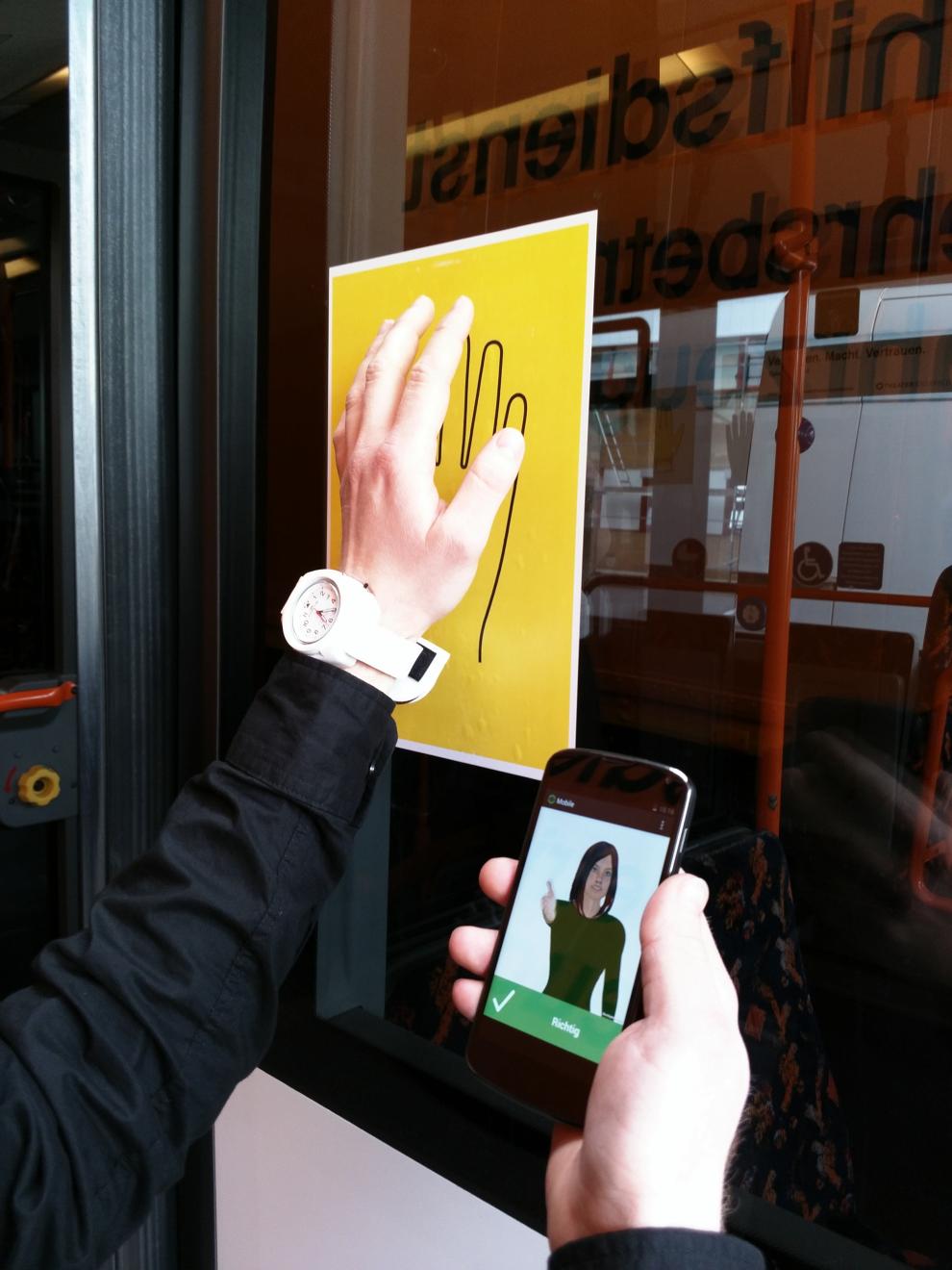The future of public transport
Rhine-Waal University of Applied Sciences showcases its project ‘Mobile - mobil im Leben’ to international audiences at IT TRANS 2016 in Karlsruhe, Germany.
Kleve/Kamp-Lintfort, 23 February 2016: Have you ever rushed into the bus only to realise that you’re in the wrong one? Or faced the many questions and concerns that come with travelling in public transportation? There are many factors that make it difficult to relax and enjoy the ride, particularly for passengers with impairments. Rhine-Waal University of Applied Sciences is presenting its solution to the problem at the 2016 IT TRANS – IT trends and innovations for public transport expo in Karlsruhe (hall 1, booth G8) from 1-3 March 2016. Researchers and project partners will be showcasing ‘Mobile - mobil im Leben’, an ongoing research project designed to make it easier for passengers to navigate their way through complicated public transportation systems.
“Our booth features fully functioning prototypes and an overview of our development progress to date,” notes Professor Dr Christian Ressel of Rhine-Waal University of Applied Sciences and project lead. For the booth display researchers in the Faculty of Communication and Environment have created scale models of your typical bus and bus stop in Germany so that visitors can test out prototypes and systems in a realistic setting. “We present visitors with a mock scenario from the customers’ point of view in order to demonstrate in detail our specially developed user interface for navigation and route planning, the tracking function with optical markers, and the use of ‘Bluetooth Beacons’ and ‘wearable gadgets’. For representatives of transport authorities, we explain the technical framework behind our concept and the opportunities it presents for barrier-free public transport.”
In other words, researchers will be presenting a self-explanatory navigation system that can be used on smartphones, tablets and smart watches and is designed to simplify public transport for passengers. “The program can track the user’s position and help them navigate to the correct location, it can identify vehicles and stops for the user, and it can deliver important information in real-time, such as delays or changes to routes or train platforms,” explains Professor Dr Ressel.
The project is the result of a joint effort between Rhine-Waal University of Applied Sciences, Niederrhein University of Applied Sciences, SHK Stadtwerke Krefeld AG, Bielefeld-based moBiel GmbH and Bethel.region (the latter to provide expert advice on the wants and needs of disabled passengers), and the health services provider inoges/Salvea of Krefeld. The project is funded by the Federal Ministry for Economic Affairs and Energy (BMWi) through 30 September 2016. The results of the project will serve as the basis for the project partners’ planned roll out in the near future, which will be expanded to the entire public transport network (bus and train) and eventually become standard.


